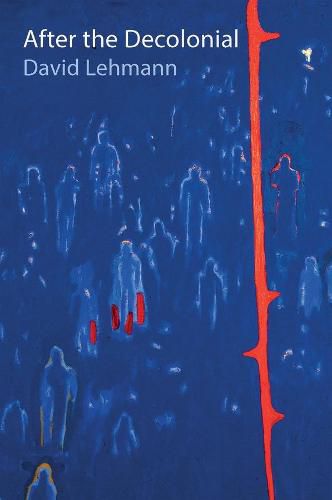Readings Newsletter
Become a Readings Member to make your shopping experience even easier.
Sign in or sign up for free!
You’re not far away from qualifying for FREE standard shipping within Australia
You’ve qualified for FREE standard shipping within Australia
The cart is loading…






After the Decolonial examines the sources of Latin American decolonial thought, its reading of precursors like Fanon and Levinas and its historical interpretations. In extended treatments of the anthropology of ethnicity, law and religion and of the region’s modern culture, Lehmann sets out the bases of a more grounded interpretation, drawing inspiration from Mexico, Brazil, Bolivia and Chile, and from a lifelong engagement with issues of development, religion and race.
The decolonial places race at the centre of its interpretation of injustice and, together with the multiple other exclusions dividing Latin American societies, traces it to European colonialism. But it has not fully absorbed the uniquely unsettling nature of Latin American race relations, which perpetuate prejudice and inequality, yet are marked by metissage, pervasive borrowing and mimesis. Moreover, it has not integrated its own disruptive feminist branch, and it has taken little interest in either the interwoven history of indigenous religion and hegemonic Catholicism or the evangelical tsunami which has upended so many assumptions about the region’s culture.
The book concludes that in Latin America, where inequality and violence are more severe than anywhere else, and where COVID-19 has revealed the deplorable state of the institutions charged with ensuring the basic requirements of life, the time has come to instate a universalist concept of social justice, encompassing a comprehensive approach to race, gender, class and human rights.
$9.00 standard shipping within Australia
FREE standard shipping within Australia for orders over $100.00
Express & International shipping calculated at checkout
After the Decolonial examines the sources of Latin American decolonial thought, its reading of precursors like Fanon and Levinas and its historical interpretations. In extended treatments of the anthropology of ethnicity, law and religion and of the region’s modern culture, Lehmann sets out the bases of a more grounded interpretation, drawing inspiration from Mexico, Brazil, Bolivia and Chile, and from a lifelong engagement with issues of development, religion and race.
The decolonial places race at the centre of its interpretation of injustice and, together with the multiple other exclusions dividing Latin American societies, traces it to European colonialism. But it has not fully absorbed the uniquely unsettling nature of Latin American race relations, which perpetuate prejudice and inequality, yet are marked by metissage, pervasive borrowing and mimesis. Moreover, it has not integrated its own disruptive feminist branch, and it has taken little interest in either the interwoven history of indigenous religion and hegemonic Catholicism or the evangelical tsunami which has upended so many assumptions about the region’s culture.
The book concludes that in Latin America, where inequality and violence are more severe than anywhere else, and where COVID-19 has revealed the deplorable state of the institutions charged with ensuring the basic requirements of life, the time has come to instate a universalist concept of social justice, encompassing a comprehensive approach to race, gender, class and human rights.